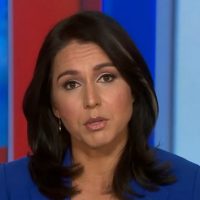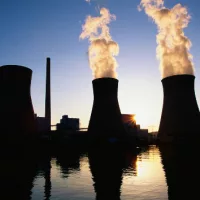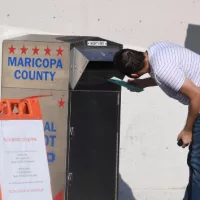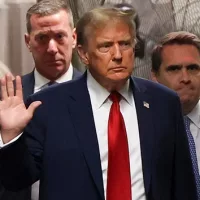
 ABC News(WASHINGTON) — Amid roiling trade tensions, the crowded 2020 Democratic candidate field now finds itself divided on a path forward on the tricky terrain of American trade – a path made all the more difficult by President Donald Trump’s protectionist stance and hardline tone on getting “fair deals” for the U.S.
ABC News(WASHINGTON) — Amid roiling trade tensions, the crowded 2020 Democratic candidate field now finds itself divided on a path forward on the tricky terrain of American trade – a path made all the more difficult by President Donald Trump’s protectionist stance and hardline tone on getting “fair deals” for the U.S.
Democrats staking out more trade-friendly views contrast themselves with the Trump administration’s hard-line; some have assumed the attack stance that isolationist trade policies hurt farmers rather than achieve fairer deals. It’s a tricky tap dance for Democrats seeking to contrast themselves with President Trump yet not alienate key Rust Belt or progressive grassroots voting blocks.
The growing interparty divide on trade could set the stage for the first Democratic debate next month, as progressive leaning candidates hope to set themselves apart from their centrist rivals in hopes of winning blue-collar voting blocks in the 2020 election.
There are those who have spoken strongly for free trade: former Gov. John Hickenlooper of Colorado recently released his plan proposing more cooperation and to “re-energize trade with the world.”
During his first foreign policy address at the Chicago Council on Global Affairs on Monday, the centrist presidential contender criticized Republicans and his fellow Democrats for limiting U.S. trade.
“Today politicians in both parties are pushing to restrict America’s trading opportunities,” Hickenlooper said. “Mr. Trump launched tariff wars. Protectionists on the left seek to block new trade agreements. This belligerence toward trade is self-destructive. It undermines our diplomatic leverage. At a time when 95% of the world’s consumers live outside our borders, we cannot have economic growth, economic justice, or full security without expanding trade. We need open and fair trade, so our people can benefit from trade rather than hide from it,” he added.
Hickenlooper told George Stephanopoulos on “This Week” that backing away from open trade impacts the U.S. economy and national security.
“Almost all the other Democrats, not all, but many of the other Democrats feel that we should back away from fair and open trade,” Hickenlooper said on “This Week.” Only through “constant engagement and building up that trade are we going to get to full security. And I think as we revive U.S. leadership, we’re able to not only make our country safer but as I said, we’re going to be able to be more prosperous at the same time.”
Former Rep. Beto O’Rourke, like a number of 2020 candidates has focused on rural crop communities on his several trips to early voting states such as Iowa. They’ve positioned themselves as fighting for farmers where Trump’s tariffs have hurt the agricultural community.
In an op-ed on CNN timed with his Tuesday town hall, O’Rourke said President Trump’s tariffs lead America’s trading partners to turn elsewhere – leaving farmers holding the bag.
“People are hurting with this biblical-strength flooding,” Geoff Burgan, O’Rourke’s Iowa communications director, told ABC News. “Farmers out here have regularly told [O’Rourke] ‘We want trade, not aid.’ And the future of rural America is something you can’t get away from.”
O’Rourke’s recently unveiled climate proposal – a sweeping $5 trillion plan – specifically folds in initiatives focused on Midwestern agricultural communities – agenda items like expanding federal crop insurance and investing in flood infrastructure.
Others, such as former Vice President Joe Biden find themselves himself in a complicated position on trade.
Biden voted for the North American Free Trade Agreement (NAFTA) and permanent normal trade relations with China. He and O’Rourke also supported former President Barack Obama’s Trans-Pacific Partnership (TPP) — a sweeping multinational trade proposal that included Pacific Rim nations, which a number of unions opposed out of concerns about labor protections and that it would cost the U.S. jobs.
Some rival 2020 campaigns have hammered Biden on this perceived vulnerability.
Sen. Bernie Sanders, I-Vermont, who opposed NAFTA and the Trans-Pacific Partnership, attacked Biden’s voting record on trade, attempting to draw a sharp contrast between himself and his front-running presidential opponent.
“Joe voted for NAFTA and permanent trade relations, trade agreements with China. I led the effort against that. Joe voted for the deregulation of Wall Street, I voted against that,” Sanders told White House Chief Correspondent Jonathan Karl during an interview on “This Week” in Des Moines, Iowa earlier this month.
It’s not the first time Sanders has spoken out strongly on trade; he has vigorously opposed policies like NAFTA from its inception, calling out his 2016 primary opponent Hillary Clinton for her support of the Trans-Pacific Partnership.
“I was on the picket line in opposition to NAFTA,” Sanders said during the New Hampshire primary debate during the last election. “We heard people tell us how many jobs would be created. I didn’t believe that for a second.”
For those on the front lines weathering the storm of trade wars and climate change alike, farmers at the center of the conflict will scrutinize candidates’ positions and past voting record closely for who will prioritize their interests.
Biden recently defending his vote on NAFTA, telling the Associated Press he supported not free trade, but fair trade. “I think that back in the time during the Clinton administration, it made sense at the moment,” the former vice president said.
Candidates like Massachusetts Sen. Elizabeth Warren, D-Mass., join Sanders in being long-time skeptics of free trade.
She vehemently opposed Trans-Pacific Partnership, calling it “a rigged process” producing “a rigged outcome” for 40 percent of the U.S. economy, urging Congress in 2015 to reject the trade plan “tilt the playing field even more in favor of big multinational corporations and against working families.”
She opposed the United States Mexico Canada Trade agreement (USMCA), Trump’s renegotiated trade deal with Mexico and Canada, calling it “NAFTA 2.0” and voting against the plan in 2018. Stumping in Iowa, her speech has fiercely denounced big agro, calling for the breakup of industry mergers, charging “consolidation is choking family farms.”
For those on the front lines weathering the storm of trade wars and climate change alike, the price of tea in China and hundreds of other items is front and center this election cycle. Farmers feeling tariffs’ sting, and surging Davenport, Iowa floodwaters will scrutinize candidates’ positions and past voting record closely for who will prioritize their interests.
As things stand, farmers who spoke with ABC News expressed frustration.
“When we take China off the table for a demand for our products, we suddenly have a huge amount of supply and the price collapses,” Matt Russell, a fifth-generation farmer in Iowa, who owns a 110-acre farm of produce, heirloom tomatoes and grass-fed beef told ABC News’ Senior Washington Reporter, Devin Dwyer. “The biggest thing is the loss of trade. That’s the big story.”
Copyright © 2019, ABC Radio. All rights reserved.















